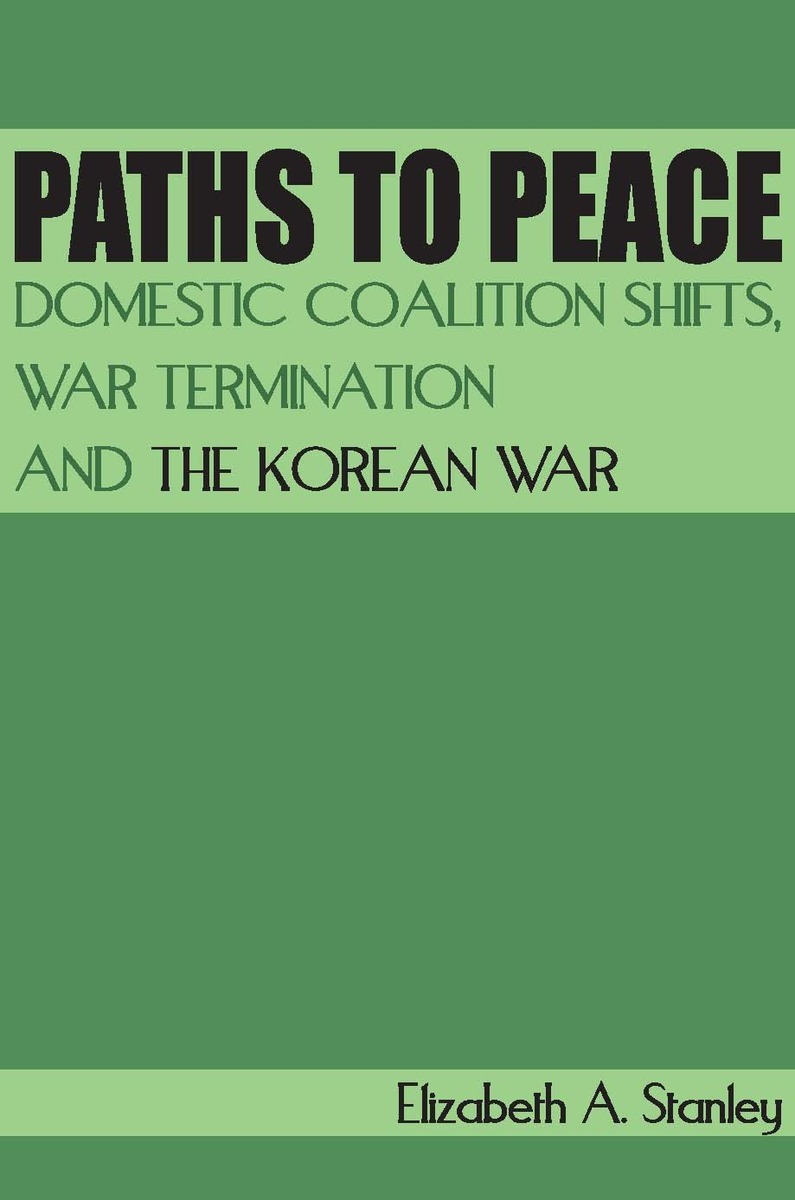 Winner of the 2009 Edgar S. Furniss Award for “an exceptional contribution to the field of national security”
Winner of the 2009 Edgar S. Furniss Award for “an exceptional contribution to the field of national security”
Paths to Peace explores why wars are so difficult to end. Dr. Stanley develops a theory about the domestic obstacles to making peace—and the role of shifts in states’ governing coalitions in overcoming these obstacles. Most theories about war termination ignore how domestic politics shape the international bargains that end war. In contrast, she explains how the longer the war, the harder it is to end, because domestic obstacles to peace become institutionalized over time.
Paths to Peace tests the argument with a mixed-methods approach: historical case studies integrating primary source archival research, and statistical analysis with an original dataset she meticulously coded over many years.
She applies the theory to an in-depth analysis of the ending of the Korean War, with historical case studies of the war’s major combatants—the United States, China, the Soviet Union, and the two Koreas. Analyzing the domestic politics of these five nations, she explains why the final armistice terms accepted in July 1953 were little different from those proposed at the start of negotiations in July 1951, some 294,000 additional battle-deaths later.
Paths to Peace concludes with policy recommendations for leaders making decisions about prosecuting and ending both civil and interstate wars.
Get A Copy Today
What People Are Saying
“Stanley’s book is the best scholarly analysis and revision so far of the bargaining model of war termination.”
“Important book …. A most useful addition to the literature on the Korean War.”
“Stanley’s is the research agenda of the future…. This [two-level approach] research is very hard, a lot harder than Stanley’s book makes it look.”
“Why do some belligerents choose to end costly wars, while others continue to struggle over control of seemingly useless bits of territory while the death toll mounts? Paths to Peace tackles this timeless and timely question in an original, engaging, and rigorous way.”
“Paths to Peace is an outstanding work on a very important subject—how wars come to an end. Well-informed and well-written, the book should be of great interest to all scholars and students of international relations and the domestic politics of war and peace.”
You must be logged in to post a comment.